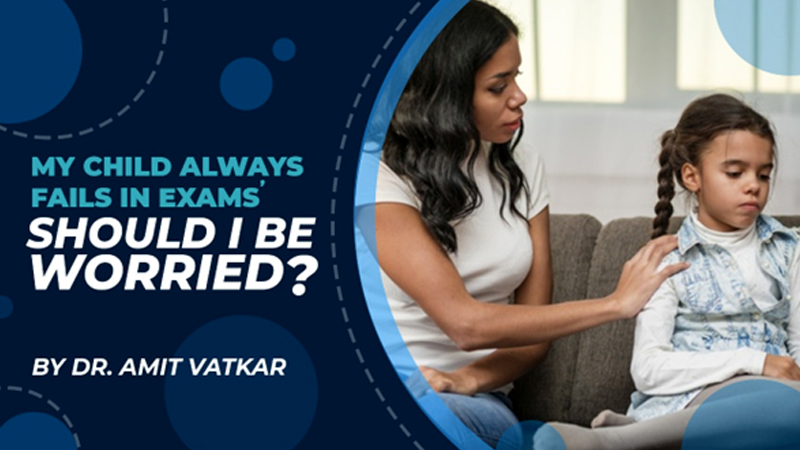Understanding Academic Struggles in Children

Understanding Academic Struggles in Children
Introduction:
As a parent, witnessing your child facing difficulties in academics can be a source of concern and uncertainty. If your child consistently struggles and fails in exams, you may be wondering if there's an underlying reason for their challenges. Dr. Amit Vatkar, a renowned pediatric neurologist at Adilife Polyclinic, is here to provide expert insights into academic struggles in children. In this article, we'll delve into potential factors contributing to academic difficulties and how seeking professional guidance can make a difference.
Recognizing Varied Learning Styles:
Children have unique learning styles, and traditional classroom settings might not suit everyone. Dr. Amit Vatkar emphasizes that it's crucial to understand your child's preferred learning style, as well as their strengths and weaknesses. Some children excel when learning visually, while others may grasp concepts better through hands-on activities or verbal explanations.
Identifying Potential Underlying Factors:
Persistent academic struggles could stem from a range of factors. Dr. Vatkar suggests considering the following possibilities:
- Learning Disabilities: Conditions like dyslexia or attention-deficit/hyperactivity disorder (ADHD) can impact a child's ability to focus, comprehend, and retain information.
- Anxiety and Stress: Emotional factors such as anxiety and stress can significantly affect a child's performance in exams. These feelings might arise from a fear of failure, perfectionism, or other emotional challenges.
- Executive Functioning Issues: Difficulties in organization, time management, and planning (known as executive functioning) can hinder a child's ability to prepare for exams effectively.
- Motivation and Self-esteem: Low self-esteem or a lack of motivation can contribute to academic struggles. Children who feel discouraged may not put forth their best effort.
When to Seek Professional Guidance:
Dr. Amit Vatkar advises parents to be attentive to persistent academic difficulties that don't seem to improve over time. If your child's struggles are impacting their self-esteem, emotional well-being, or overall academic progress, it's advisable to consult with a professional. A pediatric neurologist, like Dr. Vatkar, can conduct assessments to determine whether there are underlying neurological or developmental factors contributing to your child's challenges.
Expert Evaluation and Tailored Support:
At Adilife Polyclinic, Dr. Amit Vatkar specializes in pediatric neurology and developmental concerns. He understands that academic struggles can be multifaceted, and he provides comprehensive evaluations to identify the root causes. By tailoring interventions to address specific challenges, Dr. Vatkar aims to empower both children and their families with strategies for improved academic performance and emotional well-being.
Conclusion:
Persistent academic struggles shouldn't be dismissed as mere challenges; they might indicate underlying factors that require attention. Dr. Amit Vatkar's expertise ensures that your child's learning and developmental needs are addressed with personalized care. Seeking professional guidance is a proactive step toward providing your child with the support they need to thrive academically and emotionally.